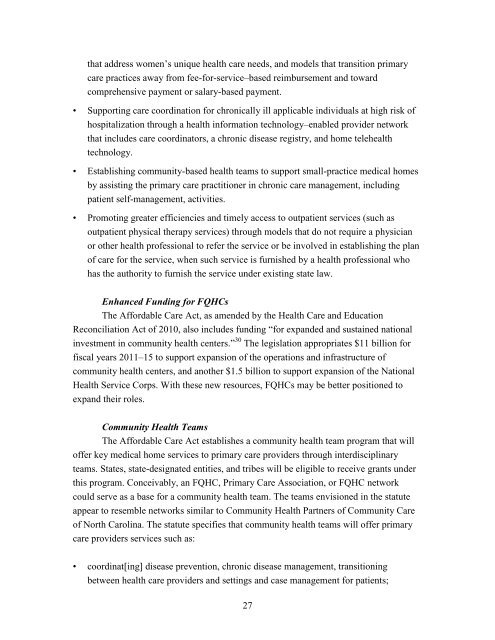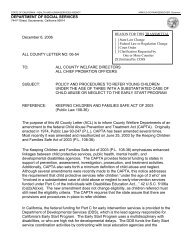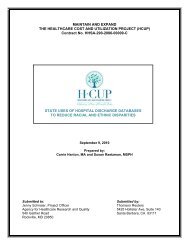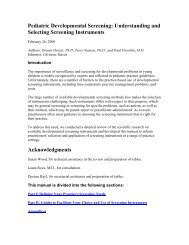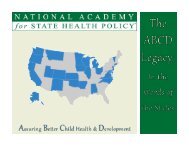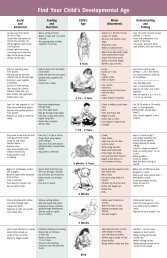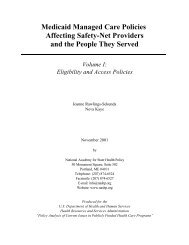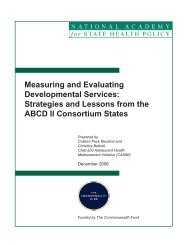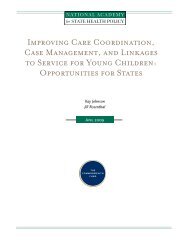Developing Federally Qualified Health Centers into Community ...
Developing Federally Qualified Health Centers into Community ...
Developing Federally Qualified Health Centers into Community ...
You also want an ePaper? Increase the reach of your titles
YUMPU automatically turns print PDFs into web optimized ePapers that Google loves.
that address women’s unique health care needs, and models that transition primary<br />
care practices away from fee-for-service–based reimbursement and toward<br />
comprehensive payment or salary-based payment.<br />
• Supporting care coordination for chronically ill applicable individuals at high risk of<br />
hospitalization through a health information technology–enabled provider network<br />
that includes care coordinators, a chronic disease registry, and home telehealth<br />
technology.<br />
• Establishing community-based health teams to support small-practice medical homes<br />
by assisting the primary care practitioner in chronic care management, including<br />
patient self-management, activities.<br />
• Promoting greater efficiencies and timely access to outpatient services (such as<br />
outpatient physical therapy services) through models that do not require a physician<br />
or other health professional to refer the service or be involved in establishing the plan<br />
of care for the service, when such service is furnished by a health professional who<br />
has the authority to furnish the service under existing state law.<br />
Enhanced Funding for FQHCs<br />
The Affordable Care Act, as amended by the <strong>Health</strong> Care and Education<br />
Reconciliation Act of 2010, also includes funding ―for expanded and sustained national<br />
investment in community health centers.‖ 30 The legislation appropriates $11 billion for<br />
fiscal years 2011–15 to support expansion of the operations and infrastructure of<br />
community health centers, and another $1.5 billion to support expansion of the National<br />
<strong>Health</strong> Service Corps. With these new resources, FQHCs may be better positioned to<br />
expand their roles.<br />
<strong>Community</strong> <strong>Health</strong> Teams<br />
The Affordable Care Act establishes a community health team program that will<br />
offer key medical home services to primary care providers through interdisciplinary<br />
teams. States, state-designated entities, and tribes will be eligible to receive grants under<br />
this program. Conceivably, an FQHC, Primary Care Association, or FQHC network<br />
could serve as a base for a community health team. The teams envisioned in the statute<br />
appear to resemble networks similar to <strong>Community</strong> <strong>Health</strong> Partners of <strong>Community</strong> Care<br />
of North Carolina. The statute specifies that community health teams will offer primary<br />
care providers services such as:<br />
• coordinat[ing] disease prevention, chronic disease management, transitioning<br />
between health care providers and settings and case management for patients;<br />
27


